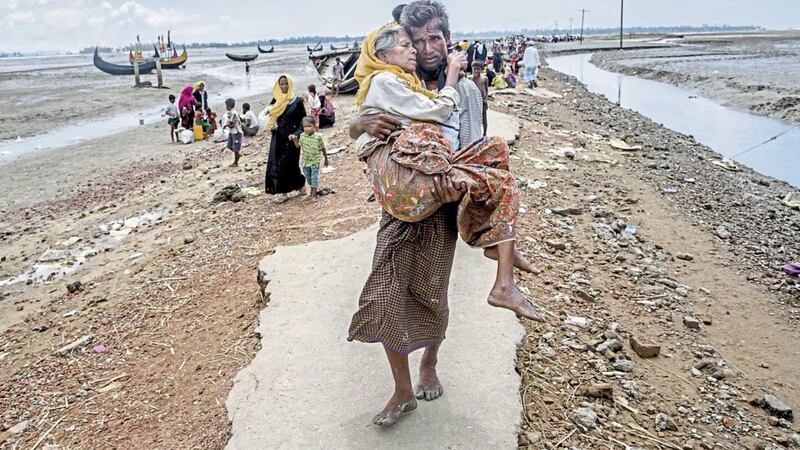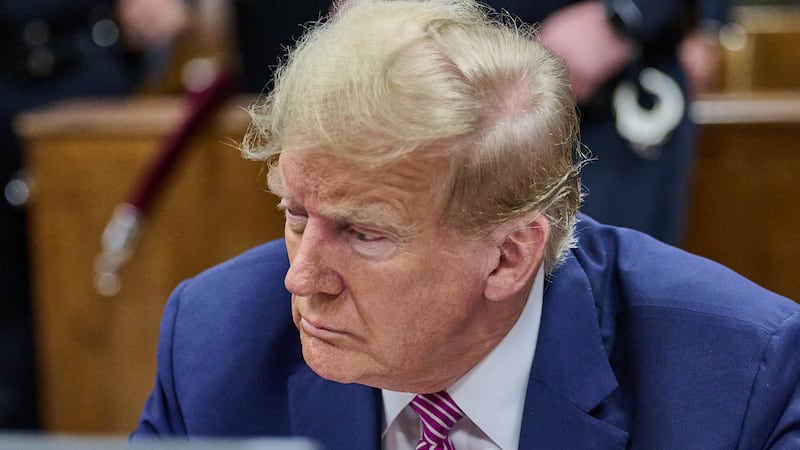BANGLADESHI authorities have taken steps to restrict the movement of Muslim Rohingya refugees living in crowded border camps after fleeing violence as Burma's military chief maintained the chaos was the work of extremists seeking a stronghold in the country.
It comes as Hollywood star Angelina Jolie condemned the violence against Rohingya Muslims in Burma and called on the country's government and its leader, Nobel Peace Prize recipient Aung San Suu Kyi, to no longer remain silent.
Bangladesh has been overwhelmed with more than 400,000 Rohingya who fled their homes in the last three weeks amid a crisis the UN describes as ethnic cleansing.
Premier Sheikh Hasina, who lambasted Burma for "atrocities" during a visit to border camps last week, left Dhaka to address the annual UN gathering in New York.
Refugee camps were already beyond capacity and new arrivals were staying in schools or huddling in makeshift settlements with no toilets along roadsides and in open fields.
Police were checking vehicles to prevent the Rohingya from spreading to nearby towns in an attempt to control the situation.
"There is an instruction from the prime minister that we must treat Rohingya Muslims maintaining human rights," said A.K.M. Iqbal Hossain, a police superintendent.
"As many private and social organisations are coming and distributing relief, sometimes chaos breaks out."
He said with the scale of the crisis "it's very difficult to keep order, but we are doing so".
The refugees began pouring from Burma's Rakhine state after a Rohingya insurgent group launched attacks on security posts on August 25, prompting Burma's military to launch "clearance operations" to root out the rebels.
Those fleeing have described indiscriminate attacks by security forces and Buddhist mobs.
The Burma government says hundreds have died, mostly "terrorists," and that 176 out of 471 Rohingya villages have been abandoned.
Burma has insisted that Rohingya insurgents and fleeing villagers are destroying their own homes. It has offered no proof to back these charges.
Ethnic Rohingya have faced persecution and discrimination in majority-Buddhist Burma for decades and are denied citizenship, even though many families have lived there for generations.
The government says there is no such ethnicity as Rohingya and says they are Bengalis who illegally migrated to Burma from Bangladesh.
"The violence was an organised attempt of extremist Bengalis in Rakhine state to build a stronghold," Burma's powerful military chief Min Aung Hlaing said on Saturday, according to a statement posted on his official Facebook page.
"They have demanded recognition as Rohingya, which has never been an ethnic group in Burma."
He called on the nation to be "united in establishing the truth" and for all the country's citizens to "have unity with their love for the country", including members of the media.
Jolie on Sunday told weekly Welt Am Sonntag: "It's absolutely clear that the violence by the army needs to stop and that the return of the refugees has to be permitted and that the Rohingya should be given civil rights.
"We all wish that Aung San Suu Kyi will in this situation be the voice of human rights."



